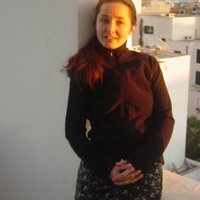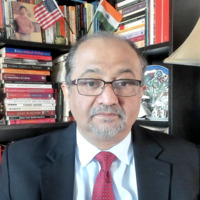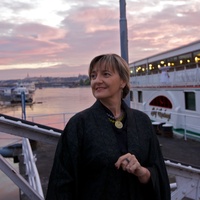Books by Carolina Ivanescu
The past several years have seen many examples of friction between secular European societies and... more The past several years have seen many examples of friction between secular European societies and religious migrant communities within them. This study combines ethnographic work in three countries (The Netherlands, the United Kingdom, and France) with a new theoretical frame (regimes of secularity). Its mission is to contribute to an understanding of minority identity construction in secular societies. In addition to engaging with academic literature and ethnographic research, the book takes a critical look at three cities, three nation-contexts, and three grassroots forms of Muslim religious collective organization, comparing and contrasting them from a historical perspective.

Western European nation-states are diverse and plural. Many Muslims are citizens of France, the N... more Western European nation-states are diverse and plural. Many Muslims are citizens of France, the Netherlands and the United Kingdom. While everybody seems to know to a certain extent who Muslims are and what Islam is, there is also disagreement about what this label implies. A wide variety of signifiers are attached to this name: when we think of Muslims we alternatively think of religion, we think of migrants and minorities, of populations with low socio-economic position, of terrorists and radicals and while many other images pop immediately to mind. These labels may be stereotypes. They may generalize. But they are also used as forms of self-identification. Furthermore, these meanings do not necessarily exclude each other, but together form a field of significance which is constructed by all the actors taking part in the construction of meaning: a field of Muslimness.
The liberal state looks at Muslims through two paradigms of subjectivization, one targeting their Otherness in terms of religion, namely the regime of secularity, which draws upon the concept of the secular and the way a certain understanding of the social relevance of religion was captured and minutely discussed in the theory of secularization; second, through the paradigm of citizenship, which deals with members of the nation-state in a neutral and egalitarian manner through its different institutions, various levels of governing and many mechanisms of inclusion and exclusion. In this book I am arguing that these two paradigms mentioned above are essential for understanding the position of European Muslims today. Although they can be seen as a double disadvantage Muslims as members of western liberal states encounter (Modood 2005, 2010), they can also present windows of opportunity for Muslims. While the opposition between the West and the East and the special negative attention given to Islam is not new but rather a permanent feature of the history of western thought (Wheatcroft 2004), Muslims can now engage with these images from the position of citizens. One of these windows of opportunity is the possibility to rethink and re-evaluate the role and place of religion in modern society.
Papers by Carolina Ivanescu
Social Anthropology, 2012
Islam and Secular Citizenship in the Netherlands, United Kingdom, and France, 2016
Culture and Religion, Dec 1, 2010
This article may be used for research, teaching, and private study purposes. Any substantial or s... more This article may be used for research, teaching, and private study purposes. Any substantial or systematic reproduction, redistribution, reselling, loan, sub-licensing, systematic supply, or distribution in any form to anyone is expressly forbidden. The publisher does not give any warranty express or implied or make any representation that the contents will be complete or accurate or up to date. The accuracy of any instructions, formulae, and drug doses should be independently verified with primary sources. The publisher shall not be liable for any loss, actions, claims, proceedings, demand, or costs or damages whatsoever or howsoever caused arising directly or indirectly in connection with or arising out of the use of this material.
Islam and Secular Citizenship in the Netherlands, United Kingdom, and France, 2016
Comparative Sociology, 2016
Comparative Sociology, 2016
Http Dx Doi Org 10 1080 01419870 2012 720697, Dec 4, 2012
Ethn Racial Stud, 2012
This article may be used for research, teaching, and private study purposes. Any substantial or s... more This article may be used for research, teaching, and private study purposes. Any substantial or systematic reproduction, redistribution, reselling, loan, sublicensing, systematic supply, or distribution in any form to anyone is expressly forbidden. The publisher does not give any warranty express or implied or make any representation that the contents will be complete or accurate or up to date. The accuracy of any instructions, formulae, and drug doses should be independently verified with primary sources. The publisher shall not be liable for any loss, actions, claims, proceedings, demand, or costs or damages whatsoever or howsoever caused arising directly or indirectly in connection with or arising out of the use of this material.
Social Anthropology, 2015
Comparative Sociology, 2015
Becoming a Shaman: Narratives of Apprenticeship and Initiation in Contemporary Shamanism, 2020
This article, based on an open-question survey completed in 2018, engages with McAdams and Mancza... more This article, based on an open-question survey completed in 2018, engages with McAdams and Manczak's approaches to life stories (2015) and Mayer's ten elements of the shaman myth (2008) to explore the way contemporary people based in the UK, who define themselves as shamans, talk about their becoming a shaman. Individual narratives point out the intricate meeting points between different shamanic traditions and the importance of continuous innovation. They highlight the complex network of human and beyond-human authority and problematize the place, meaning and agency of the self. Contemporary shamanism is a widespread, manifold and multifaceted phenomenon, which we argue is not as different from traditional forms of shamanism as some studies suggest.

When religion is converted in an integral part of modern political debates, religious ideas influ... more When religion is converted in an integral part of modern political debates, religious ideas influence the decisions and definitions of concepts such as education, the participation in the labor market, the structure and function of the family as a social unit, and the equality. Integration and immigration come to the forefront as the concept of citizenship acquires culturalist and moralizing dimensions. Finally, religion, politics and education begin to interfere in the areas of life that belong to the private and public spheres. From our pedagogical perspective we understand that the educational lines marked by religion influence remarkably the future of many citizens, and attach themselves to the social-political realm. We thus become aware of the fact that religion as a powerful instrument of socialization exerts a strong influence upon citizens' education and values, and presents itself as the – normally hidden – social curriculum of the context closer to many citizens. The presence of Islam and of Muslims in Europe, though not a new phenomenon, is questioned by the nation-states, confronting the official curriculum and the regulated education, with the social curriculum, strongly influenced by Islam among its followers. It therefore converts itself in an integral part of the struggle for individual and collective national identity, be it with respect to laity, to democracy or to citizenship. And, in this sense, we would like to present an up-to-date review of this question so present in Europe today.











Uploads
Books by Carolina Ivanescu
The liberal state looks at Muslims through two paradigms of subjectivization, one targeting their Otherness in terms of religion, namely the regime of secularity, which draws upon the concept of the secular and the way a certain understanding of the social relevance of religion was captured and minutely discussed in the theory of secularization; second, through the paradigm of citizenship, which deals with members of the nation-state in a neutral and egalitarian manner through its different institutions, various levels of governing and many mechanisms of inclusion and exclusion. In this book I am arguing that these two paradigms mentioned above are essential for understanding the position of European Muslims today. Although they can be seen as a double disadvantage Muslims as members of western liberal states encounter (Modood 2005, 2010), they can also present windows of opportunity for Muslims. While the opposition between the West and the East and the special negative attention given to Islam is not new but rather a permanent feature of the history of western thought (Wheatcroft 2004), Muslims can now engage with these images from the position of citizens. One of these windows of opportunity is the possibility to rethink and re-evaluate the role and place of religion in modern society.
Papers by Carolina Ivanescu
The liberal state looks at Muslims through two paradigms of subjectivization, one targeting their Otherness in terms of religion, namely the regime of secularity, which draws upon the concept of the secular and the way a certain understanding of the social relevance of religion was captured and minutely discussed in the theory of secularization; second, through the paradigm of citizenship, which deals with members of the nation-state in a neutral and egalitarian manner through its different institutions, various levels of governing and many mechanisms of inclusion and exclusion. In this book I am arguing that these two paradigms mentioned above are essential for understanding the position of European Muslims today. Although they can be seen as a double disadvantage Muslims as members of western liberal states encounter (Modood 2005, 2010), they can also present windows of opportunity for Muslims. While the opposition between the West and the East and the special negative attention given to Islam is not new but rather a permanent feature of the history of western thought (Wheatcroft 2004), Muslims can now engage with these images from the position of citizens. One of these windows of opportunity is the possibility to rethink and re-evaluate the role and place of religion in modern society.
Educ. Pesqui., São Paulo, v. 39, n. 4, p.1017-1028, out./dez. 2013.
Religion as social curriculum: education, values and Islam in Europe
Vicente Javier Llorent GarcíaI�
Carolina IvanescuII
Abstract
When religion is converted in an integral part of modern political debates, religious ideas influence the decisions and definitions of concepts such as education, the participation in the labor market, the structure and function of the family as a social unit, and the equality. Integration and immigration come to the forefront as the concept of citizenship acquires culturalist and moralizing dimensions. Finally, religion, politics and education begin to interfere in the areas of life that belong to the private and public spheres. From our pedagogical perspective we understand that the educational lines marked by religion influence remarkably the future of many citizens, and attach themselves to the social-political realm. We thus become aware of the fact that religion as a powerful instrument of socialization exerts a strong influence upon citizens’ education and values, and presents itself as the – normally hidden – social curriculum of the context closer to many citizens. The presence of Islam and of Muslims in Europe, though not a new phenomenon, is questioned by the nation-states, confronting the official curriculum and the regulated education, with the social curriculum, strongly influenced by Islam among its followers. It therefore converts itself in an integral part of the struggle for individual and collective national identity, be it with respect to laity, to democracy or to citizenship. And, in this sense, we would like to present an up-to-date review of this question so present in Europe today.